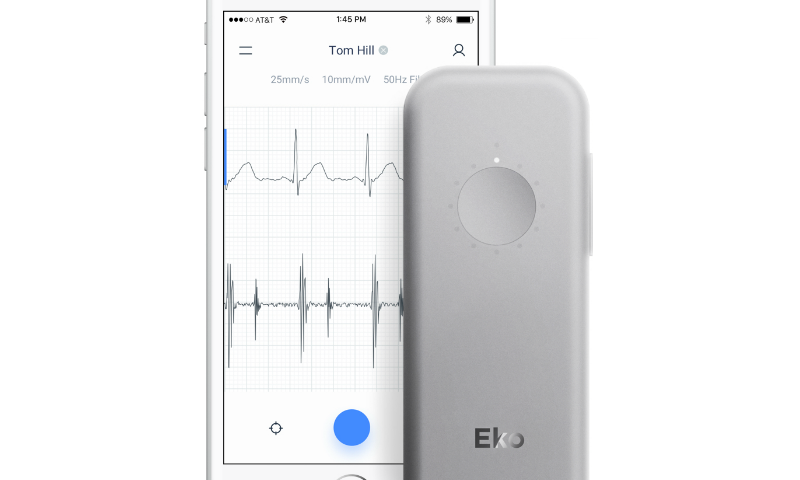AstraZeneca tapped Eko, maker of artificial intelligence-powered stethoscopes, to build new digital tools that can help screen for early signs of heart disease on a global scale.
The collaboration will also focus on further developing Eko’s algorithms while weaving its technology into the drugmaker’s cardiovascular clinical studies, including those evaluating treatments for heart failure.
With diagnoses frequently delayed due to limited access to specialists, echocardiograms and other tests, heart failure is the leading cause of hospitalization among the elderly, and affects about 64 million people worldwide, according to Eko.
“Eko was founded to provide a better way to understand our heart and lung health and to improve cardiopulmonary care for patients through digital technology and novel algorithms,” said co-founder and CEO Connor Landgraf.
“Eko’s collaboration with AstraZeneca will allow us to expand the capability of our technology, generate real-world data, and explore disease management solutions while leveraging AstraZeneca’s global expertise and existing relationships across the treatment continuum for heart failure,” Landgraf added.
In January, the FDA cleared Eko’s digital stethoscope AI for detecting heart murmurs and cases of atrial fibrillation during a routine physical. Held on the chest, the company’s Duo device captures heart sounds as well as a single-lead ECG, to help spot conditions that typically show no symptoms and may require the specially trained ear of a cardiologist.
Before that, Eko netted a breakthrough designation for an algorithm currently in development to identify weaknesses in the heart muscle’s ability to pump blood to the rest of the body, known as reduced left ventricular ejection fraction.
That software, which analyzes 12-lead ECG scans, received an emergency authorization from the FDA in May for use against COVID-19, to help screen patients for serious heart complications.

